ArtsWestchester's Janet Langsam to retire: After 33 years, $75M raised, an exit interview
Things might have turned out different for Janet Langsam, if it hadn’t been for the Long Island Rail Road.
Langsam, the diminutive doyenne of the arts who recently marked her 89th birthday, is to retire in June after 33 years as CEO of ArtsWestchester, the organization that secures funding and makes grants to the arts and artists.
Langsam, instantly recognizable by her array of colorful eyeglasses, leaves a legacy of visionary growth. When she arrived in 1991, the county-funded Westchester Arts Council served about a dozen arts institutions with its $1 million budget. As she prepares to retire (she prefers to call it “moving on” to an emeritus role), more than 200 arts groups rely on the rebranded ArtsWestchester, which now has an annual budget of $7 million and a flagship home in a former bank building in downtown White Plains.
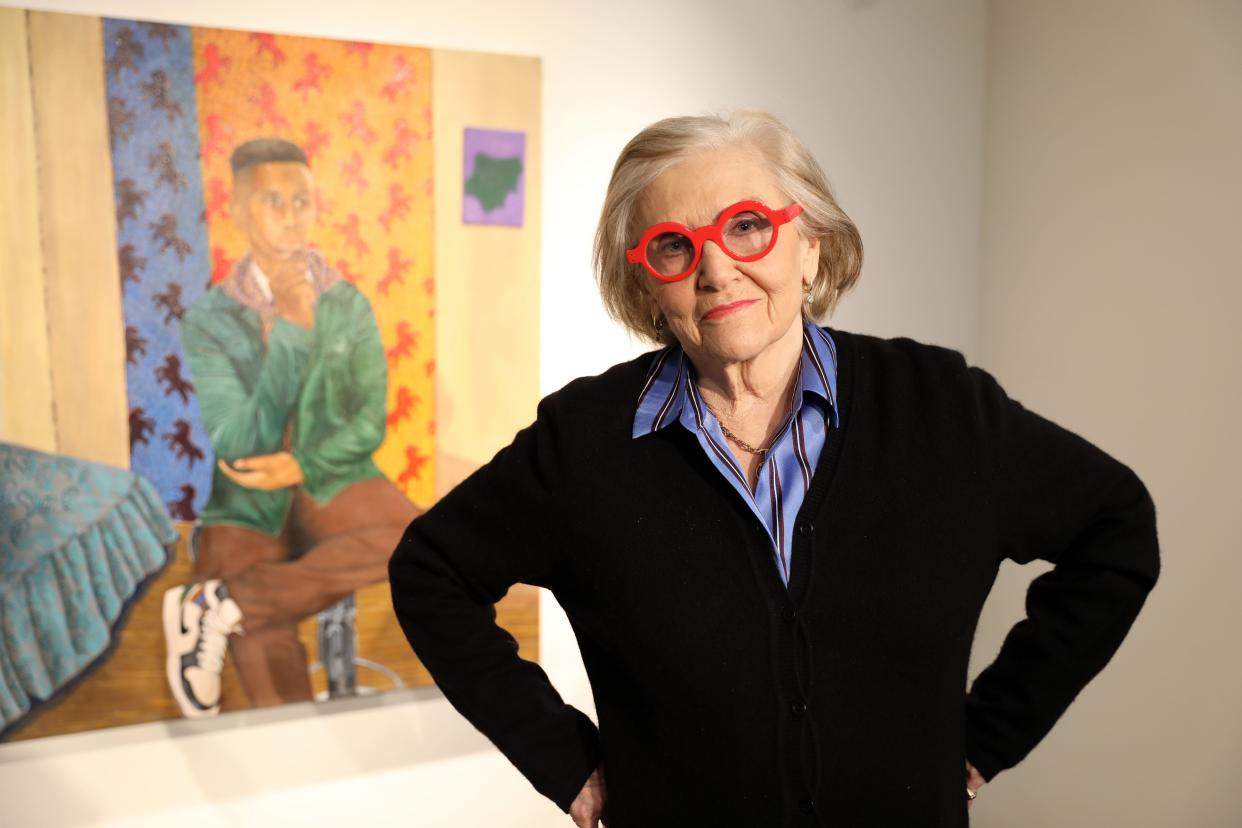
By one estimate, on her watch, Langsam has helped to secure $75 million in arts funding.
She has worked for and with Republicans and Democrats and maintained her independence. Those who have been lobbied by Langsam recall a tireless champion who made her case armed with facts and who led an army of acolytes she could — and would — mobilize as needed.
Not bad for a girl born in the Great Depression, who grew up in Far Rockaway, Queens, a long train ride from the Manhattan arts world.
Langsam’s love of the arts was fueled by her schoolteacher mother, who insisted on exposing young Janet to the performing and visual arts. That meant taking the train to Manhattan, followed by a bus uptown to the Metropolitan Museum of Art or Carnegie Hall. Or to the Henry Street Settlement on the Lower East Side, where little Janet studied dance.
The Long Island Rail Road gave, but it certainly took away.
Those trips on the LIRR — on the local, not the express, Langsam pointed out — held a lesson.
The arts are worth the trip. Worth the time. But you have to have stamina.
Those train rides also built up Langsam’s vision for what could be. It came in the form of a question for which she has demanded an answer for more than 50 years: Why shouldn’t the arts be closer to home?
Finding a ‘home’ for the arts, and artists
Sitting in the former bank building on Mamaroneck Avenue for a recent interview, Langsam spoke of the cultural homes she has created.
As she traced her love of old buildings, she clutched a small black-and-white photo of her childhood home at 1022 Bay 25th St. in the Bayswater section of Queens. Once owned by a family who used it as a summer place, the hundred-year-old home not far from Jamaica Bay sounded idyllic in Langsam's retelling.
"It was 13 rooms, three floors, a lot of balconies," Langsam recalled. "It had an oak staircase and paneling. And it had a huge stained-glass window. That's where I grew up."
“Home” came to define much of Langsam’s life — and several of her careers.
She was a painter, until a divorce left her with three children under 10 and she faced the prospect of not being able to feed her family.
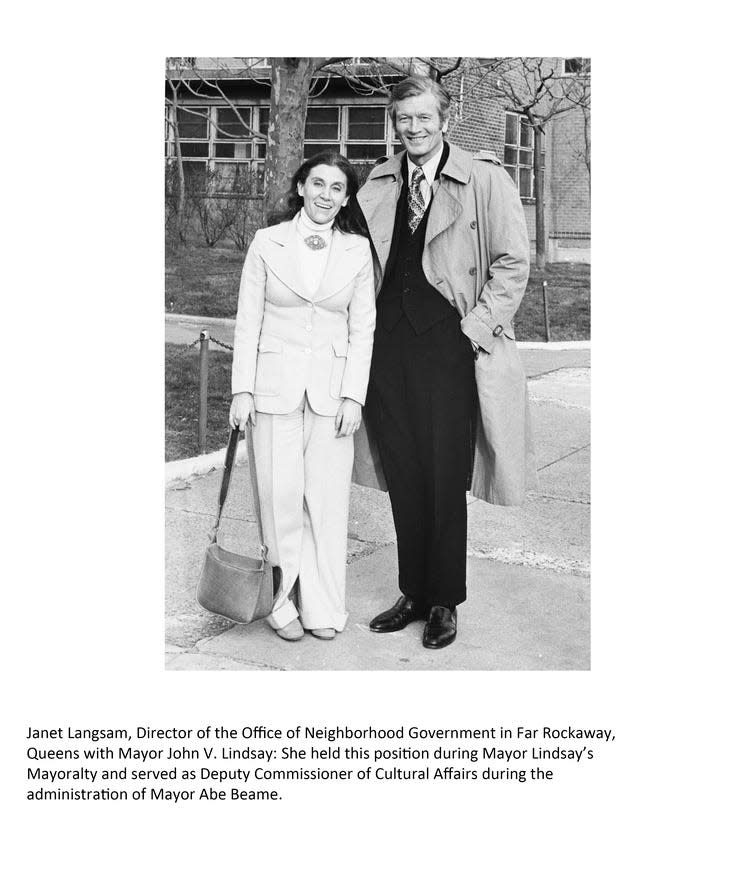
She chaired a planning board in northern Queens, which taught her to strategize. There, she caught the eye of New York City Mayor John Lindsay, a Republican who sought to decentralize city government. Working for Lindsay cemented Langsam’s belief that art should be decentralized, too.
“I'm someone who thinks: 'Queens doesn't have a museum. Queens should have a museum,'” she said. “It's nice to have the Metropolitan Museum, which is like an encyclopedia of the world arts scene, but it's also nice to have something close to home where you don't have to ride on the Long Island Rail Road for an hour and then take the bus uptown.”
She cut a deal with Lindsay’s budget director to make the Queens Museum a reality — in the City Building built for the 1964 World’s Fair — and became one of its founders and, later, chair of its board.
The arts as an economic engine
When Democrat Abe Beame was elected New York City mayor, Langsam drafted a paper for his transition team, making a case to break the city's Cultural Affairs office out from under the Parks Department, where it had long been. The arts, Langsam wrote, are an economic engine and should be treated as part of the economic development sphere. Soon enough, she was Beame's first deputy commissioner of cultural affairs, then Ed Koch's.
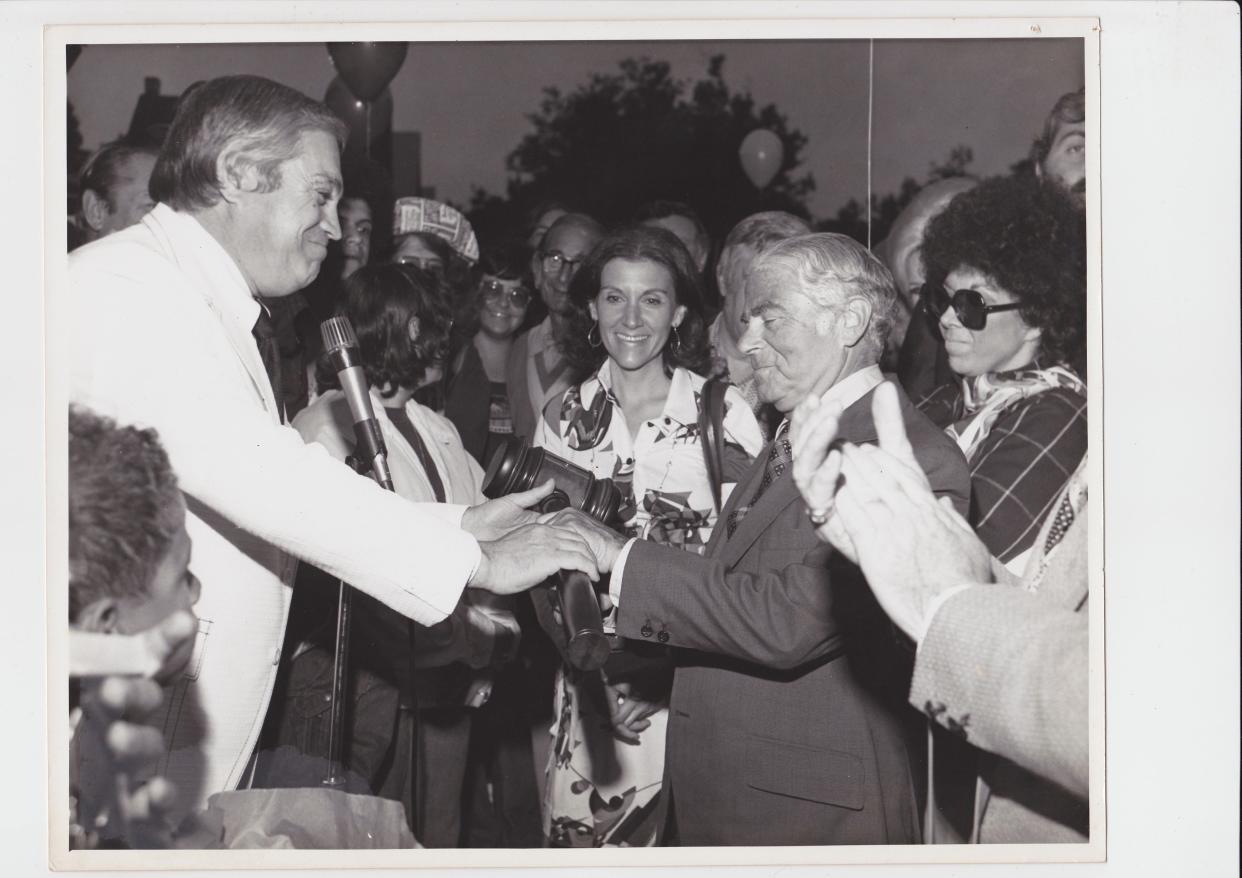
In the 1980s, she was an assistant housing commissioner in the Koch administration when interest rates were sky high and the city sat on a huge stock of abandoned tenements. Langsam helped secure lower-interest loans to create housing for artists.
She left to lead the Boston Center for the Arts, where she helped the Boston Ballet refurbish a rundown property for a state-of-the-art rehearsal facility, a new home.
In 1991, she returned to New York to lead the Westchester Arts Council, formed in 1965 by a group of well-meaning Westchester women “in somebody's kitchen,” Langsam said. She credits former county executive Al DelBello and his wife, Dee, for setting an arts priority in the county.
One of Langsam's legacy projects at ArtsWestchester came in 1998 when she had the vision to bid on a long dormant bank building in downtown White Plains, an area in need of renewal. The 12-story building, one of the city's first skyscrapers, became home to ArtsWestchester, to offices, galleries, and artist studios. Deemed "a manageable risk" by a banker-board member, the building became a bellwether for the downtown's rebound.
All those decades in public policy and arts administration have given Langsam an outlook on getting things done. Call it the Janet Langsam Way. How does she sum it up?
"You gotta think around the curves," she said. "That's my way."
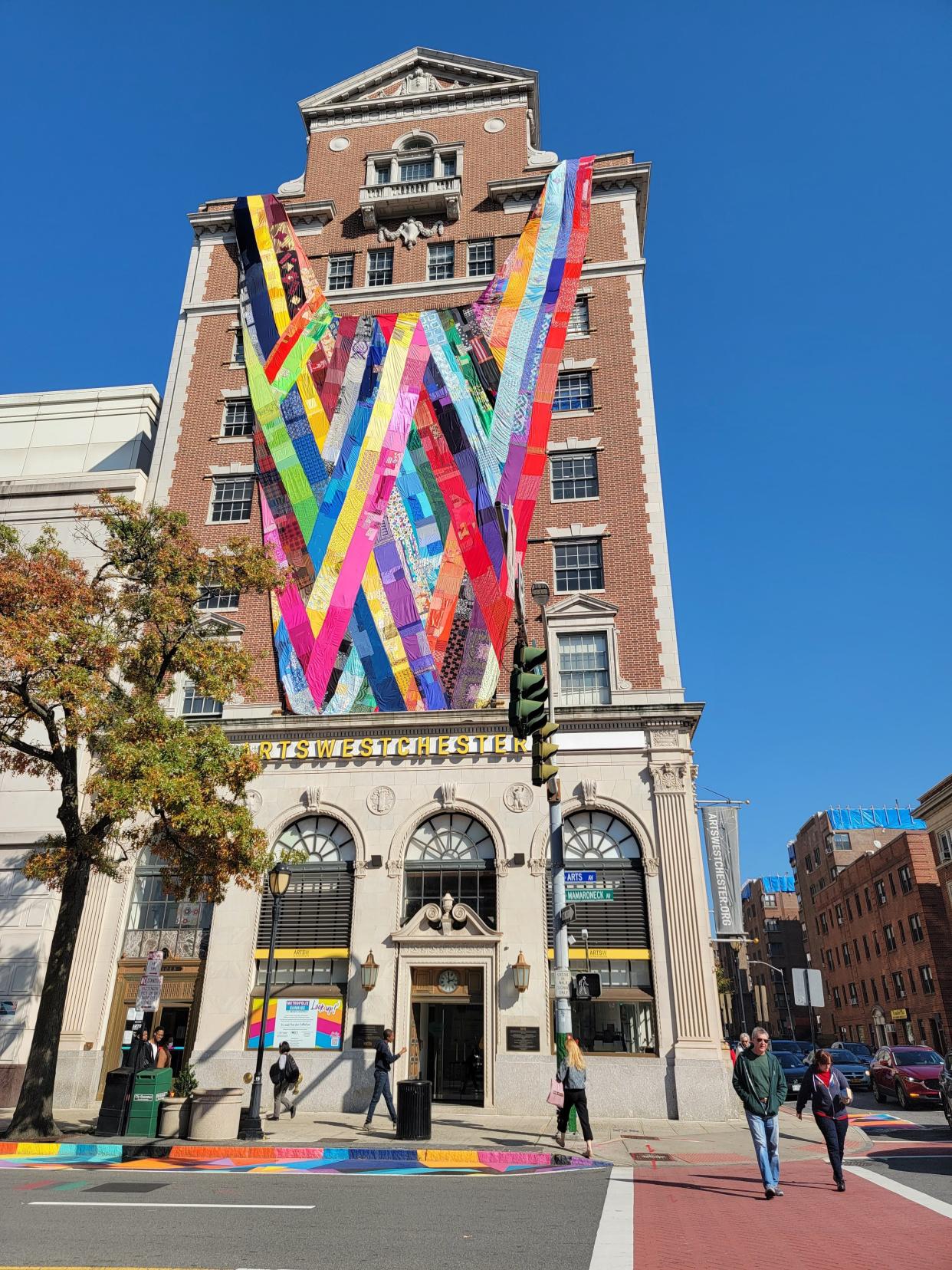
An artistic ambush in Albany
In her 33 years at ArtsWestchester, Langsam has preached the power of arts education, not, she said, because it makes artists out of people. The goal is to teach people to think creatively, an asset in any line of work.
Yonkers Mayor Mike Spano remembered being a brand-new state assemblyman, perhaps 27 years old, just getting his feet wet in Albany when Langsam arrived at his office. She was not alone.
She had brought kids from Spano's district who had benefited from an ArtsWestchester grant. They performed a musical number, right there in his office. Recalled Spano: "She said: 'You see? This is why this is important.'"
"She got you to see the way and to care about her issue," Spano said. "I was up there 20 years and there was never a time where the Westchester delegation didn't dedicate portions of that state budget to help out Janet. Because she was just that effective a leader."
Spano had learned the Langsam Way, a lesson that has stayed with him. Seeking to revitalize Yonkers as mayor, Spano said it wasn't until his plans included the arts that "we really started to see cranes in the air and shovels in the ground."
"I really have to give that credit to Janet, because she was the one to tell me why it was important and how we needed to focus on this," he said.
Transformative arts programs
A decade ago, state Sen. Shelley Mayer, then in the Assembly, secured a million dollars to create an arts enrichment program in Yonkers schools — but she had no program to spend it on. She called Langsam.
Soon, 20 elementary schools and two high schools had artists working with classroom teachers to bring arts to core-curriculum subjects including language arts, math, tech, science and social studies. Artists, art supplies and cultural field trips brought the arts to more than 16,000 students in grades K-12.
Mayer remains impressed.
“She got local artists who did art that was relevant to these kids, African American and Latino artists, a Muslim artist. She made this rich arts program that was absolutely transformative for students and for parents," Mayer said. "This was not easy to do.”
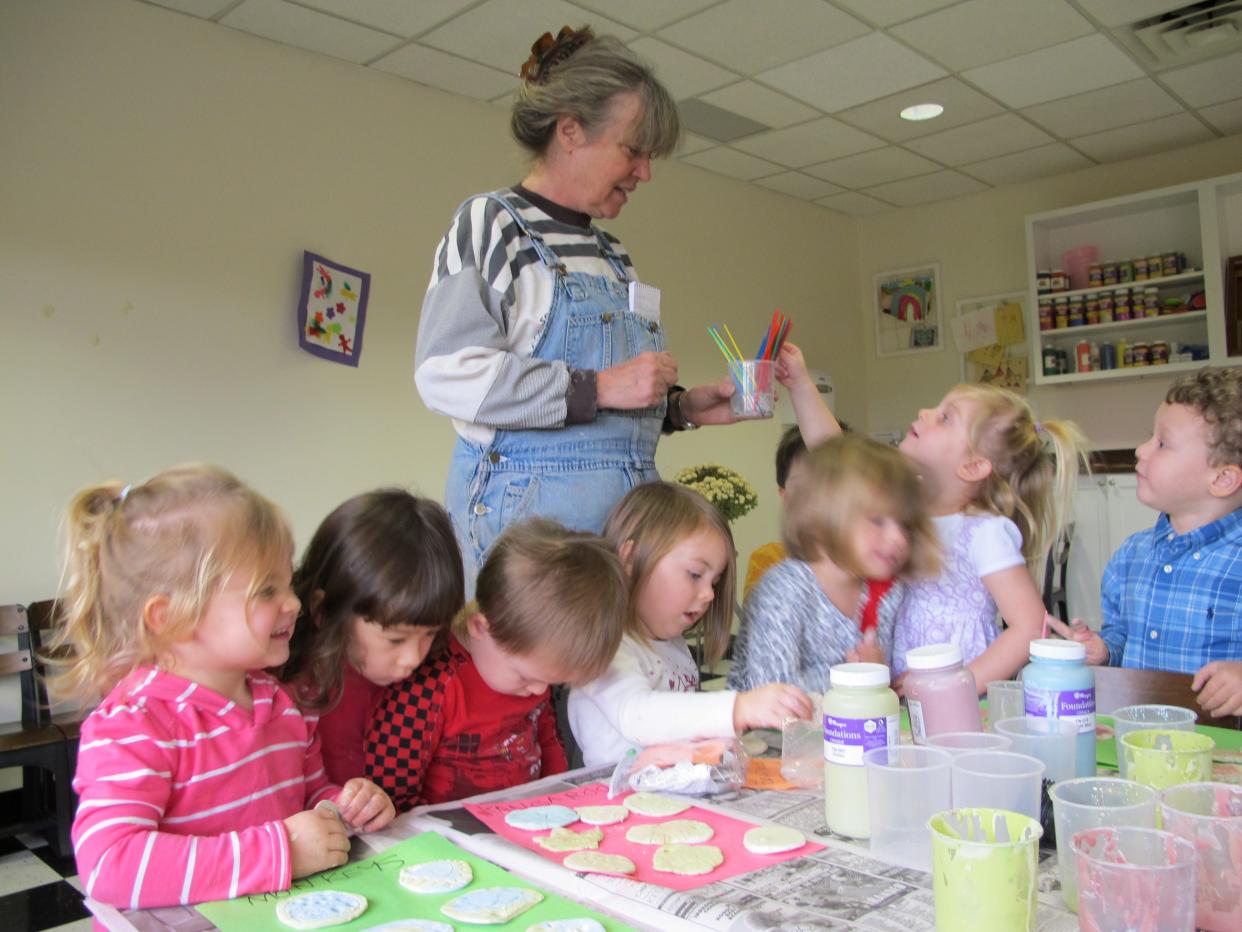
Andrea Stewart-Cousins, New York's Senate majority leader, said Langsam pushed for increased arts funding coming out of the pandemic.
"We as a delegation all understood how important ArtsWestchester was in terms of granting funds to so many artists and how many artists had been sidelined because of COVID and how much we as a community had lost because of that sidelining," Stewart-Cousins said. "It was important to help to restart the arts."
Langsam's advocacy bore fruit, in the form of multiple million-dollar grants to bolster the county's arts community. Stewart-Cousins said Langsam created artistic coattails; her work on behalf of Westchester led other upstate arts groups to lock down state funding.
'Relentless in a good way'
Westchester County Executive George Latimer has crossed paths with Janet Langsam plenty while serving in county and state government the past 25 years. He's come to a conclusion.
“There is no one who has done a more intense job of lobbying me, for benefit for the arts, than Janet," Latimer said. "She has the advantage not only of being persuasive, but she knows her stuff. It's not just: 'Please do this. It's a nice thing to do.' She can talk about what the economic impacts are of the things that she's advocating for."
Langsam is what any group wants in an advocate, the county executive said.
"She's relentless in a good way because she doesn't give up until she gets what she thinks is fair — and then she's back at you again," Latimer said. "She has always shown that stamina. That's certainly a tribute to her."
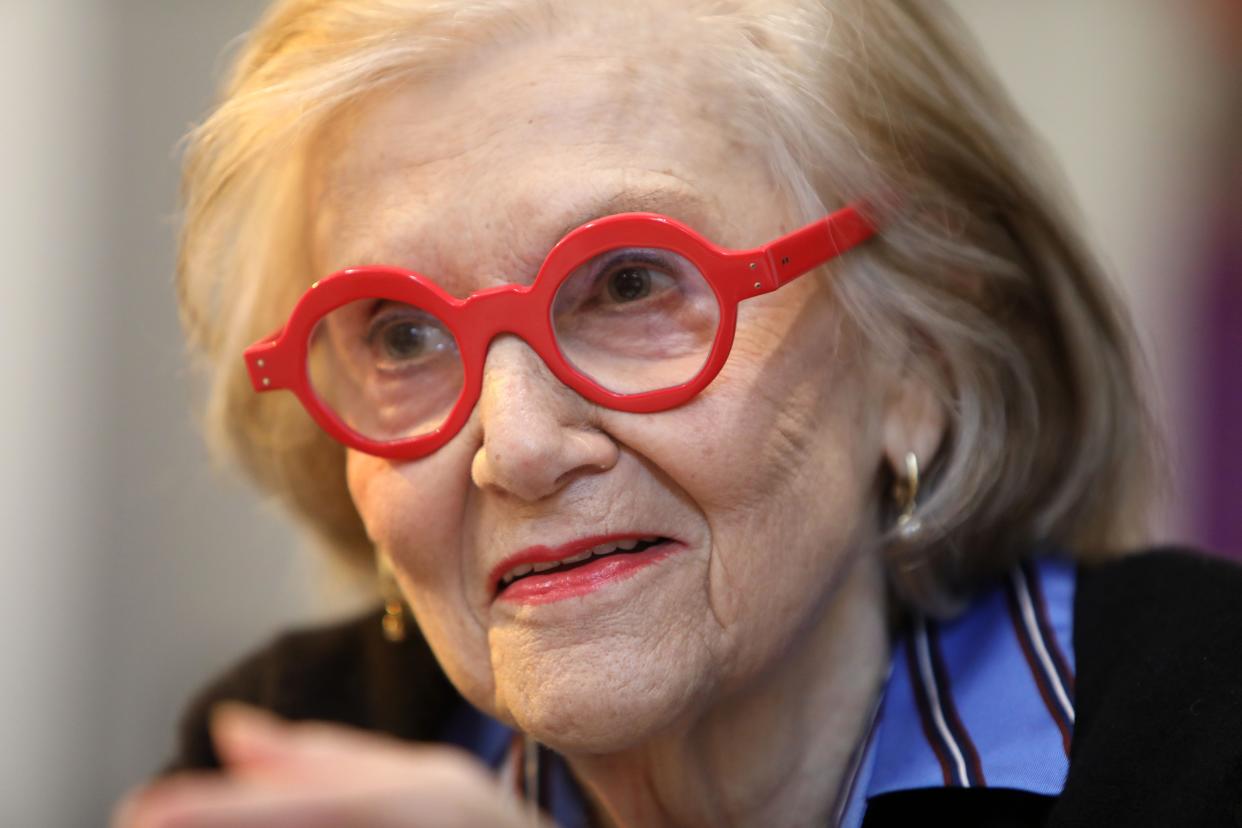
Coming to terms with exposure
Along the way, the Langsam Way has evolved.
"I used to pooh-pooh the idea of exposure, because I felt that it wasn't enough," she said. "If we went into a school, I wanted to do eight or 10 sessions. That would change these kids. But if you only have money to do one session, which is giving them an exposure to something, that's better than nothing."
That led to ArtsMobile, which, Langsam said, "comes into the neighborhood like the Good Humor truck." When the ArtsMobile arrives, a pop-up art class follows.
"They paint outdoors and their grandparents or whoever took them there is with them. It's a family experience. That has a lot of value, especially in an age where two parents work and grandparents are often the caretakers."
A slower pace
Thirty-three years is a long time for a hard-charging visionary, and Langsam's pace has slowed.
Her spectacles are still spectacular, oversized and still as iconic as the woman who wears them, but the prescription has gotten stronger. Macular degeneration has robbed the visionary of much of her vision. She now uses a cane.
But she spoke recently of things that will occupy her emeritus time. She wants to get back to the huge canvases she once painted, to her abstract art. She wants to write and "to do God's work," which sounds a lot like the work she's been doing for more than 50 years, consulting for arts organizations.
The vault inside ArtsWestchester's headquarters is to be named in her honor and become a site-specific gallery, a place for individual artists to find inspiration.
'The best thing I've produced'
She has raised millions, cut more than her share of ribbons, and helped to boost arts careers with work-affirming grants. But the woman in the spectacular spectacles is proudest of a most personal production.
“My family is a bunch of really good kids,” she said. “That's the best thing I've produced in my lifetime.”
Julie Langsam, the eldest of Langsam’s three children, teaches painting and drawing at Rutgers University's Mason Gross School of the Arts. Daughter Jacqueline is Queen borough commissioner for New York City Parks & Recreation. Her son, Jonathan, is a chef and restaurateur, with Falafel Taco restaurants in Pleasantville and Greenwich.
Julie Langsam said her mother’s way was inspiring.
“She combines art and policy and government and working for people. My sister is the commissioner of the Queens Parks Department in New York City. She took that side and I took the art side. She was very influential to both of us growing up, in different ways.”

When Julie Langsam said she wanted to pursue art as a career, her mother suggested a more steady career in architecture.
“She started out as a painter, but when my parents split up and she had to support three little kids, she needed to make a living and she realized how difficult that was,” Julie Langsam said. “She was speaking from firsthand experience when she was like, ‘Don't do this.’”
But Langsam made a career of promoting the arts and supporting artists, her daughter said.
“People should be supported if that's what they want to do and if that's their gift, because it's important for society," Julie Langsam said. "We are remembered for our cultures and if we don't nurture them, it's just not good.”
An oversized untitled Janet Langsam work hangs in her daughter’s New Jersey living room. How would the art professor describe her mother’s art?
“She makes these beautiful, gorgeous, large abstract expressionist geometric paintings. They're very much of her time of the '60s and early '70s,” she said. “The color just radiates a mood off of the paintings.”
The mood radiating from the arts community in Westchester and beyond is one of gratitude for the work of Janet Langsam, a girl from Far Rockaway who took what the Long Island Rail Road gave her — the good and the bad — and found a way.
Reach Peter D. Kramer at pkramer@gannett.com.
This article originally appeared on Rockland/Westchester Journal News: ArtsWestchester CEO Janet Langsam to retire after raising $75 million
